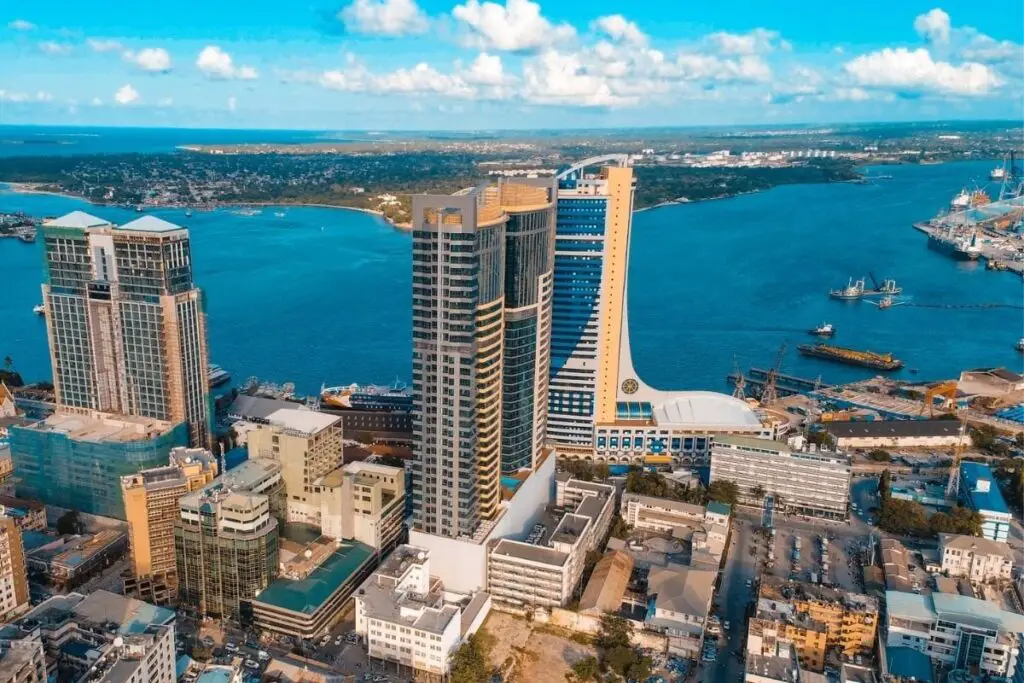- Tanzania’s economic reform program is progressing well in a challenging global economic environment and the authorities remain committed to IMF’s loan plan.
- Ongoing reforms in the country touch on strengthening the economic recovery, preserving macroeconomic stability, and supporting structural reforms toward sustainable and inclusive growth.
- Tanzania’s three-year Extended Credit Facility Arrangement for total access of about $1,046.4 million at the time of program approval received the greenlight on July 18, 2022
The International Monetary Fund (IMF) has given Tanzania’s economy a shot in the arm by furnishing the country with $153 million loan, bringing to around $304.7 million, the amount received so far under the lender’s extended credit arrangement struck in July last year.
The loan will be channeled towards economic recovery, preserving macro-financial stability, and promoting sustainable and inclusive growth.
IMF argued that reforms centre on strengthening fiscal space to allow for much-needed social spending and high-yield public investment, enhancing the monetary policy framework and improving financial sector supervision, and advancing structural reforms.
Read: Tanzania banking on transport economy to ace East Africa’s market
At a 4.7 percent inflation rate and an economy standing on a 5.2 percent GDP, IMF support comes at an opportune moment as Tanzania strategically aligns its economy for steady growth.
Tanzania, the third fastest growing economy in Africa, is estimated by the United Nations (UN) to increase by 5.6 percent this year, anticipated to enhance its economic performance.
Further, Tanzania is propelling its economic reform program as the Bank of Tanzania (BoT) sustains the implementation of a moderate liquidity-reducing monetary policy stance, which aims at striking a balance between controlling inflation and supporting the ongoing recovery of economic activities.
More importantly, the central bank’s monthly economic review noted that private sector credit grew by 22.5 percent in the year ending February 2023, compared with 11.9 percent in the corresponding period in 2022.
IMF argued that past economic pressures such as the Russia-Ukraine war weighed on Tanzania’s economic recovery from the Covid-19 pandemic.
“After a modest recovery to 4.9 percent in 2021, real GDP growth is estimated to have slowed to 4.7 percent in 2022, reflecting the impact of global economic conditions and shortfalls in rainfall. In 2023, growth is expected to recover to 5.2 percent as global commodity price shocks subside and the business environment improves,” the IMF statement read in part.
Read: Tanzania: IMF Covid relief fund to boost private sector
The global lender pointed out that Tanzania responded to the spillovers from the war in Ukraine with a combination of temporary fiscal support and tightening monetary policy.
“Although Tanzania’s inflation is relatively low, partly reflecting low passthrough, the authorities responded to the recent increase in inflationary pressures with temporary fuel and fertilizer price subsidies and tightening of liquidity in the financial system,” the IMF statement read in part.
IMF Deputy Managing Director and Acting Chair, Ms Antoinette Sayeh, said that “Tanzania’s reform program supported by the Extended Credit Facility (ECF) focuses on completing the pandemic health and economic response, preserving macroeconomic stability, and addressing long-term challenges to support sustainable and inclusive growth, drawing on the government’s reform priorities articulated in their Five-Year Development Plan.”
On the bright side, the IMF strongly support Tanzania’s domestic revenue mobilization. Improving expenditures’ efficiency will aid in creating the fiscal space needed to finance priority investment and social spending while safeguarding debt sustainability.
Debt management
Policymakers in Tanzania have found themselves having to strike a balance between debt management and powering economic growth. According to BoT, the national debt stock, comprising the public and private sectors, was around $40 billion at the end of February 2023, a monthly increase of $46.5 million. Out of the debt stock, 71 percent was external obligations.
Meanwhile, the central bank report showed that the stock of public and private sector external debt recorded a monthly decrease of $285 million to $28,933.7 million at the end of February 2023, attributed to exchange rate fluctuation.
The IMF, on the other hand pointed out that, as inflation remains stable, BoT should “stand ready to tighten monetary policy as needed while allowing more exchange rate flexibility against external shocks. Completing the ongoing transition to an interest rate-based monetary policy is key to enhancing the effectiveness of monetary policy.”
